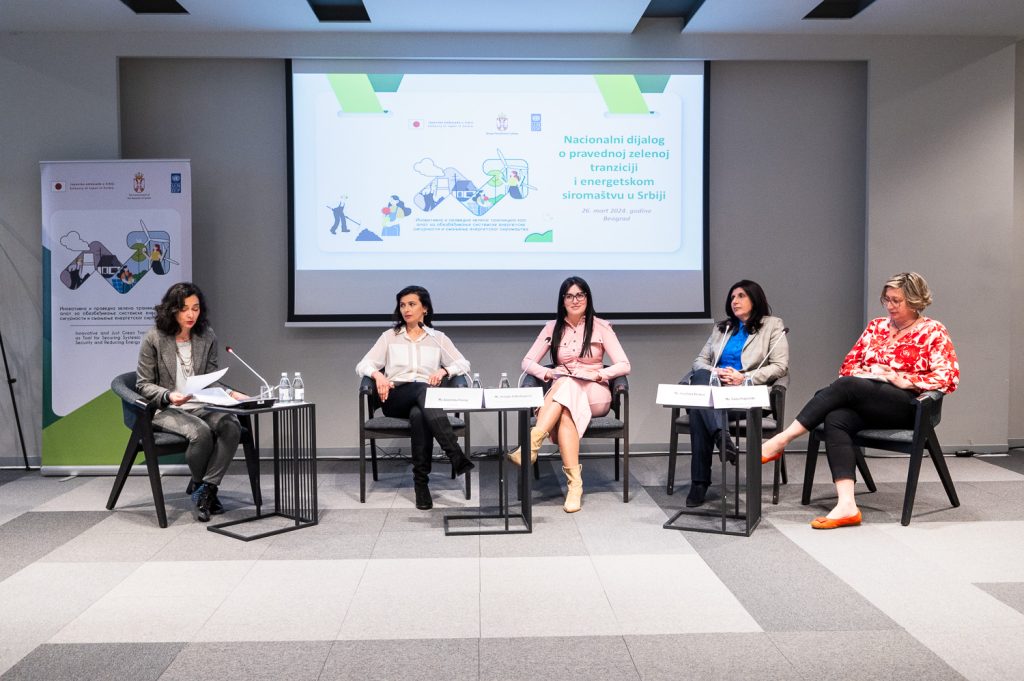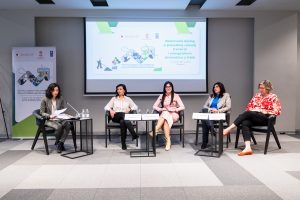
With the support of the Government of Japan, and in partnership with the Ministry of Environmental Protection and the Ministry of Mining and Energy, the United Nations Development Program (UNDP) organized on March 26 the seventh in a series of dialogues on how to implement the green transition of the economy in Serbia in a strategic and fair manner. a way that respects the needs of people in sectors and regions that rely on the intensive use of fossil fuels.
Programme director of RES Foundation, Jasminka Young, participated in the second panel, “How to respond to energy poverty?” The interlocutors on the panel were Senida Tahirbegović from the Ministry of Mining and Energy, Svetlana Drakul from the Department for Environmental Protection and Sustainable Development of the City of Užice, Tanja Popovicki – expert from Platform for Energy Transition, and the panel was moderated by Ivana Maksić, consultant on the UNDP project.
Young spoke about whether the existing national and EU support mechanisms can be used unchanged to effectively identify those who are at risk of serious and adverse consequences of energy poverty and concluded that there must be a change in approach and way of targeting in order to solve this problem. The basic message is that it is necessary to design “tailor-made” support schemes. She referred to the need to identify the most vulnerable local population in cooperation with the Centers for Social Work and to provide them with full support for changing the heating method and isolating the buildings in which they live. These households do not have the possibility to co-finance themselves and/or to access commercial money. Finally, it is necessary to focus on the consistent implementation of the Regulation adopted in December 2024, which finally introduces EU eco-design standards for stoves, as well as the Air Quality Protection Program.
The event also presented innovations for a just green transition, which companies from the private and public sector implemented throughout Serbia with the financial support of the Government of Japan. Thanks to these innovative solutions, 83 green jobs have been created, and CO2 emissions will be reduced by 28,200 tons per year.
Representatives of the ministries responsible for energy, environmental protection, as well as representatives of employers, representative trade unions, civil society and international organizations participated in the dialogue.





